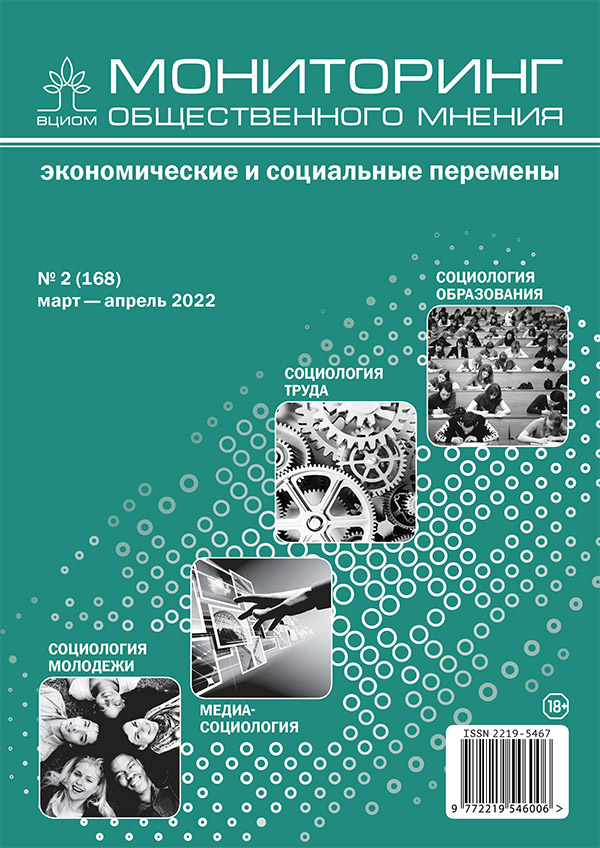Восприятие цифровизации школьного образования: исследовательские результаты онлайн-фокус-групп с учителями и родителями учеников
DOI:
https://doi.org/10.14515/monitoring.2022.2.1990Ключевые слова:
цифровизация школьного образования, субъекты образовательного процесса, трансформация ролей, коммуникация учитель — родитель, риски цифровизации, фокус-группыАннотация
Пандемия COVID-19 ускорила процесс цифровизации в школьном образовании, привела к существенной трансформации образовательных, социальных и коммуникативных процессов. Для выявления новых трендов в образовательных практиках, связанных с ними последствий и рисков проведено исследование среди учителей и родителей учеников. Данные собраны с помощью онлайн-фокус-групп, проведенных в октябре 2020 г. со школьными учителями и с родителями школьников разных ступеней обучения из разных регионов России, больших, средних и малых городов. В ходе дискуссий обсуждались характер и глубина цифровизации в школьном образовании, содержание ролей учителя и родителя, коммуникативные практики.
Анализ проводился методом категоризации высказываний информантов, выявления центральной тенденции и общего спектра мнений и практик. В результате были выделены три уровня семантико-ассоциативного пространства восприятия цифровизации в школьном обучении — базовый, средний и продвинутый. Среди наиболее серьезных рисков проявилось рассогласование нормативных взглядов учителей и родителей на свои роли, а также унифицированный подход к внедрению цифровых технологий на разных ступенях образования. Уязвимой стороной школьной цифровизации является также отношение к ней основных участников — восприятие цифровизации как фрагментарного, не имеющего конкретных целей и несистемного процесса.
На базе качественного исследования были подтверждены гипотезы о причинах негативных взглядов участников школьного образования — доминирование нисходящей модели внедрения цифровых инструментов и процессов «сверху вниз», низкая вовлеченность родителей и учителей в определение целей, этапности и конкретных форм цифровой трансформации школы. В результате недифференцированные подходы к цифровому обучению на разных ступенях малоэффективны, а часто и неприменимы. Снизить остроту рисков возможно при более поступательном подходе к трансформациям, отходе от унифицированной и разработке специфической для каждой ступени обучения модели цифровизации, учитывающей опыт и потребности ключевых участников процесса.
Загрузки
Опубликован
Как цитировать
Выпуск
Раздел
Лицензия
Copyright (c) 2022 Мониторинг общественного мнения: экономические и социальные перемены

Это произведение доступно по лицензии Creative Commons «Attribution-NonCommercial-ShareAlike» («Атрибуция — Некоммерческое использование — На тех же условиях») 4.0 Всемирная.






